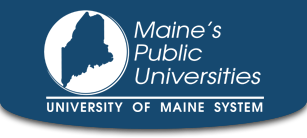
We are thrilled to share the great work that was done by our THOR Student Fellows during this past semester! They each pursued their individual interests in ways that were creative, relevant, and meaningful within the greater context of tourism, hospitality, and outdoor recreation in the state of Maine and beyond.
We are eager to share some of their thoughts and insights based on their experiences over the past few months, so please keep reading to find out more! We are looking forward to seeing how things evolve for these leaders of the next generation.
Jordan Potter (UMaine) – Jordan researched, developed, and designed an interactive map to increase public awareness and access to outdoor recreation destinations in the UMaine area. Here’s a link to his work.
“My project was very rewarding. I learned ARC GIS mapping skills and WordPress website design to make and share a map with local opportunities to enjoy nature near the University of Maine Orono campus. I visited nature trails in the forest, by the river, lakes, waterfalls and gardens and included the ones I recommend most on my map. I described what trails are on campus within walking distance, local trails directly on the bus route to help people who don’t have transportation, and ones that are a fairly short drive from campus to help all Umaine Orono students have greater awareness of ways they can go enjoy being outside close to campus. :)” – Jordan
Laini Fraiger (UMaine) – Laini worked with Maine Coast Fishermen’s Association to research current strategies and make recommendations for sustainable tourism development in working waterfront communities in Maine. She designed a survey to gauge visitor interest in the working waterfront, as well, to inform future development. Here’s a link to her presentation.
Here’s an excerpt from Laini’s final report, “The Tides of Change: Tourism’s Role in Revitalizing Working Waterfronts”
“With tourism and fishing dynamics shifting, finding a way to bridge the gap between the workers and the tourists is going to be vital for the future of Portland’s working waterfront. To make this happen, organizations are going to need to work with both the fishermen and the tourists to find a common attraction that will help the economy without hindering the day to day life of the fishermen. Increasing tourism on the waterfront will also impact small businesses and locals who live in or frequent Portland’s waterfront on a regular basis. To find this middle ground, it is recommended that a survey be conducted for the fishermen, tourists, and locals that would gauge current knowledge about the fishing industry, determine what currently draws people to the waterfront, and offer suggestions for tourist attractions to see what would interest the largest population of visitors. Results of the survey can then be used to assess new ways to involve tourists and locals with the working waterfront to help make up for the economic disparities the community is currently facing.” – Laini
Abby Lavoie (UMaine) – Abby researched, developed, and led a training for a local chapter of a national nonprofit organization called Backcountry Squatters. She consulted with experts in the field to create a robust workshop experience for participants focusing on diversity, equity, and inclusion. Here’s the link to her presentation.
“This semester, I tackled the question of how to affirm that Backcountry Squatters, a women and gender-queer outdoor organization, was meeting standards of diversity, equity, and inclusion (DEI). I began to understand this by researching, exploring self-paced programs, and speaking with professionals like Dr. Thomas Easley. As a result, I was able to outline, create, and present a DEI Workshop for Outdoor Leaders, specifically to analyze, discuss, and suggest improvements to the University of Maine Backcountry Squatters chapter. Understanding how DEI works in terms of creating a comfortable, safe space is crucial for leadership skills in an outdoor setting. Improvements include DEI-integrated meeting ideas, ADA-accessible trip locations, as well as updating our mission statement and officer bylaws. The workshop was designed to be free, accessible, and easy to navigate for all current and future leaders.” – Abby
McKenna Chappell (UMaine) – McKenna researched arts partnerships and programs in and around U.S. national parks to develop a deeper understanding of the scope of the arts at a national level. She curated her data and shared some of the highlights of her research as a website, which is linked here.
“I thoroughly enjoyed learning about the array of art programs that are held at or around national parks throughout the United States. I found it amazing that 50 of the 63 national parks have Artist-in-Residence programs which provide an opportunity for artists around the world to immerse themselves in nature while working in their medium. In addition to Artist-in-Residence programs, I found many opportunities for people of all skill/interest levels including immersing yourself in the local culture of the Virgin islands through making headpieces or hair braiding under the neem tree to taking an art class in Yosemite with the beautiful view of Half Dome. I hope the information I found will be of aid to anyone who is looking to travel and tap into their creative sides!” – McKenna




